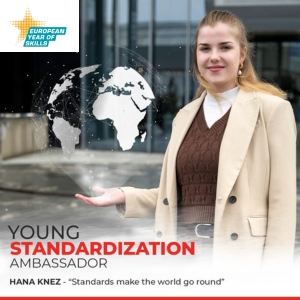NEWS

This year, the Institute for Standardization of Serbia (ISS) celebrates its 90th anniversary. With the aim of emphasizing the importance of standards and their application in all areas of life, both nationally and internationally, ISS has started the year with numerous activities. Since January, ISS has participated in several international fairs organized in Belgrade. So far, it has presented itself at the Textile, Tourism, Construction and Technical Fair.

At the end of May, SIST had the pleasure of hosting colleagues from the Institute for Standardization of Montenegro (ISME). During their visit, SIST engaged in a series of productive sessions, sharing best practices and tackling the various challenges currently facing the field of standardization.

The CWA describes a set of common procedures, methodologies and protocols to be applied when determining specific performance characteristics of gas separation membranes for various applications.

On 28 June 2023, the EU Commission announced a proposal for a EU Regulation on a Framework for Financial Data Access (FIDA).

On 23 May, the Council adopted conclusions on 'strengthening knowledge valorisation as a tool for a resilient and competitive industry and for strategic autonomy in an open economy in Europe'.

The planned CEN Workshop Agreement defines procedures for the management of technical/financial/legal support to energy transition projects implemented through a cascade funding approach.

CEN Workshop on 'Raman devices calibration, verification and twinning protocols' was kicked off on 28 February 2024.

With the European elections approaching, the twin green and digital transitions open new opportunities for the European industry and citizens, in a quickly changing global scenario. But does Europe have what it takes? How can we make sure that it has the skills and the workforce to remain competitive in the global economy? And what is the role of standardization?

The objective of this Workshop is the development of one CEN Workshop Agreement intends to raise awareness and alignment about the key role of SAF in the transition to carbon neutrality in the aviation sector, as well as to explain the environmental benefits.

On 16 May 2024, CEN and CENELEC received the visit of a delegation from SCC (Standards Council of Canada), headed by Mrs Chantal Guay, SCC’s Chief Executive Officer.